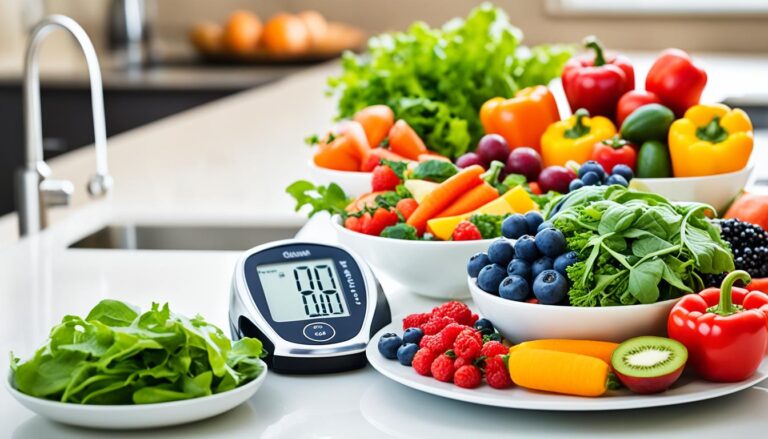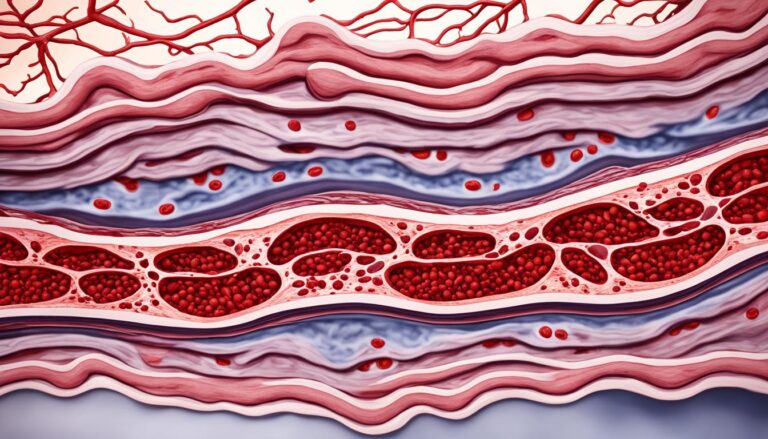When you think of high-protein foods, fruits might not be the first thing that comes to mind. But what if we told you that there are fruits out there that can provide a significant amount of protein?
Yes, you read that right! Certain fruits have surprisingly high protein content and can be a delicious addition to your diet.
So, which fruits are these protein powerhouses? And how can they contribute to your overall protein intake? Get ready to have your taste buds tantalized and challenge the notion that fruits are just for vitamins and minerals.
Key Takeaways:
- Some fruits are rich in protein, making them an excellent addition to your diet.
- Protein plays a crucial role in repairing cells and building muscles.
- Incorporating high-protein fruits into your meals can help you create a well-rounded and nutritious eating plan.
- There are creative recipes available that incorporate high-protein fruits, allowing you to enjoy their benefits in various ways.
- By understanding the role of protein and exploring new fruit options, you can take your diet to the next level.
Understanding the Role of Protein in Your Diet
Protein is an essential nutrient that plays a vital role in maintaining overall health and well-being. From repairing cells to building muscles and supporting a healthy immune system, protein is necessary for numerous bodily functions.
In this section, we will delve into the importance of protein in your diet and explore the various sources available to meet your protein needs.
Why Your Body Needs Protein
Your body needs protein to function optimally. Protein is made up of amino acids, which are the building blocks of our body’s tissues and organs.
When we consume protein, it gets broken down into amino acids that are used for various purposes, such as repairing damaged tissues, building and maintaining muscles, and producing enzymes and hormones.
Without an adequate intake of protein, your body may struggle to perform these essential functions.
Meat and Dairy Alternatives for Protein
While meat and dairy products are traditionally considered the primary sources of protein, there are plenty of alternatives available for those following a vegetarian or vegan lifestyle.
Plant-based protein sources such as tofu, tempeh, seitan, legumes, and nuts can provide the necessary protein for individuals looking to reduce or eliminate animal products from their diet.
These alternatives not only offer a high protein content but also come with additional nutritional benefits like fiber and antioxidants.
Plant-based protein sources not only offer a high protein content but also come with additional nutritional benefits like fiber and antioxidants.
Benefits of Plant Based Proteins
Incorporating plant-based proteins into your diet can offer numerous benefits. Firstly, plant-based protein sources are generally lower in saturated fat, making them healthier alternatives to animal products.
Secondly, they are often rich in fiber, which can promote digestive health and help maintain a healthy weight. Additionally, plant-based proteins can be more environmentally sustainable, as they require fewer resources to produce compared to animal-based proteins.

What Makes a Fruit Proteinaceous?
When it comes to protein content, not all fruits are created equal. While fruits are generally known for their high vitamin and fiber content, some fruits also pack a punch when it comes to protein. So what makes a fruit proteinaceous?
Proteinaceous fruits are those that contain a significant amount of protein, making them a valuable source of this essential nutrient. Incorporating these fruits into your diet can help you meet your daily protein requirements, especially if you follow a vegetarian or vegan lifestyle.
One way to identify proteinaceous fruits is by looking at their amino acid profile.
Amino acids are the building blocks of protein, and different fruits contain varying amounts and combinations of these essential nutrients. Some fruits are particularly rich in certain amino acids, making them excellent sources of protein.
For example, bananas are known for their high levels of the amino acid tryptophan, which plays a vital role in various bodily functions. Including bananas in your diet can help increase your protein intake while providing other health benefits as well.
Another factor that determines the protein content of fruits is their overall nutritional composition. Fruits that are higher in calories and carbohydrates tend to have lower protein content, while those that are lower in calories and higher in protein and healthy fats are more likely to be proteinaceous.
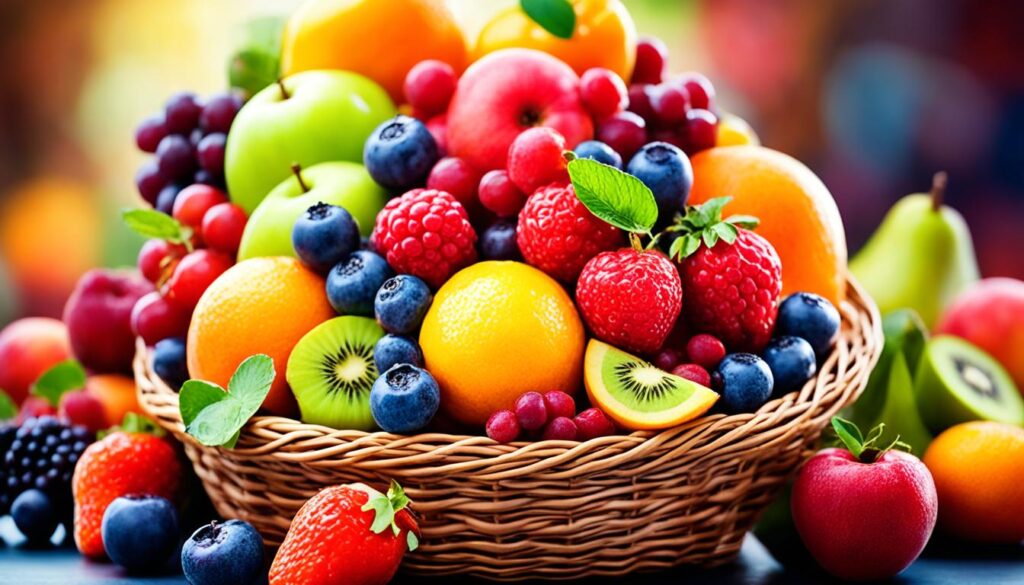
So, which fruits should you include in your protein-packed diet? In the next section we will explore seven of the highest-protein fruits and their nutritional benefits. Get ready to discover a whole new way to enjoy fruits and meet your protein needs.
7 of the Highest Protein Fruits
In this section, we will explore seven delicious and protein packed fruits that can be a valuable addition to your diet. Each fruit offers a unique combination of flavors textures, and nutritional benefits.
Let’s dive in and discover how these fruits can nourish your body and boost your protein intake.
Sumptuous Guavas: A Protein Powerhouse

Guavas are not only known for their distinct flavor and aroma but also for their high protein content.
These tropical fruits are packed with essential amino acids and provide a substantial amount of protein per serving. Guavas also offer a rich array of vitamins and minerals, making them a nutritious choice for any diet.
Avocado More Than Just Healthy Fats
Avocado, a versatile and creamy fruit is often praised for its healthy fat content. However it’s also a great source of protein.
You’ll be surprised to know that avocados contain all nine essential amino acids making them a complete protein source. Incorporating avocados into your meals can not only add a satisfying texture but also boost your protein intake.
Sweet and Nourishing Apricots Protein Content
Apricots, with their juicy and vibrant flesh, are not only a delicious summertime treat but also a surprising source of protein.
These fruits provide a satisfying amount of protein while delivering various vitamins and minerals. Including apricots in your diet can help support your overall health and provide a natural protein boost.
Blackberries Berries with a Protein Punch
Blackberries, with their deep purple hue and tart sweet taste, are a delightful addition to any diet. They are not only rich in antioxidants but also offer a notable amount of protein.
Incorporating blackberries into your meals or enjoying them as a snack can contribute to meeting your protein needs while satisfying your taste buds.
Jackfruit A Tropical Protein Surprise
Jackfruit often hailed as a versatile meat substitute also deserves recognition for its protein content.
This tropical fruit is an excellent source of plant-based protein and provides a unique texture that can be used in various savory and sweet dishes. Adding jackfruit to your culinary repertoire can introduce you to a delicious and protein rich fruit.
Kiwi and Oranges Citrus Fruits with a Protein Boost
While we often associate citrus fruits like kiwi and oranges with vitamin C, they also offer a surprising amount of protein.
These tangy and refreshing fruits can be a valuable addition to your diet, providing both taste and nutritional benefits. Incorporating kiwi and oranges into your meals can help diversify your protein sources and add a zesty twist.
| Fruit | Protein Content per 100g |
|---|---|
| Guavas | 2.6g |
| Avocado | 2g |
| Apricots | 0.5g |
| Blackberries | 1.4g |
| Jackfruit | 1.7g |
| Kiwi | 1.1g |
| Oranges | 1g |
As you can see from the table above, these fruits offer a range of protein content. Incorporating a variety of these highest protein fruits into your diet can provide you with a diverse and nutrient rich eating plan.
Incorporating High Protein Fruits into Your Meals
Now that we know about the high protein fruits available it’s time to explore how to add them to your meals.
Incorporating protein rich fruits into your breakfast, lunch, dinner and snacks can help create a well rounded and nutritious meal plan. Not only will these fruits provide a boost of protein but they also bring their unique flavors and textures to your dishes.
One delicious and easy way to incorporate high protein fruits is by adding them to smoothies. tablespoon Berry Blast Protein Smoothie made with blackberries kiwi, and oranges can provide a refreshing and protein packed start to your day.
You can also try including fruits like avocados or apricots in your morning avocado toast or overnight oats. These additions not only enhance the taste but also increase the protein content of your breakfast.
For lunch, consider adding guavas, jackfruit, or avocados to your salads. These fruits can provide a unique twist to your salad bowl while giving you an added protein boost.
You can also use these fruits as a topping for your grain bowls or wraps. The combination of crunchy veggies grains, and protein-rich fruits creates a satisfying and nutritious lunch option.
When it comes to dinner, get creative with high protein fruits. Try making a tropical jackfruit curry or grill some sliced apricots alongside your favorite protein source.
The natural sweetness of these fruits adds a burst of flavor to your meals while providing additional protein. You can also incorporate fruits like guavas or kiwi into salsa or chutney recipes for a delightful twist.
Don’t forget about snacks! High-protein fruits make excellent snacks to keep you energized throughout the day.
Enjoy a handful of blackberries or apricots as a midday pick-me-up or have some avocado salsa with whole grain chips. These snacks not only satisfy your cravings but also provide a healthy dose of protein.
As you can see, there are endless possibilities when it comes to incorporating high protein fruits into your meals. Get creative in the kitchen and experiment with different combinations and cooking methods.
By adding these protein-rich fruits to your breakfast, lunch, dinner, and snacks, you’ll not only enhance the nutritional value of your meals but also enjoy the delicious flavors and textures they bring.
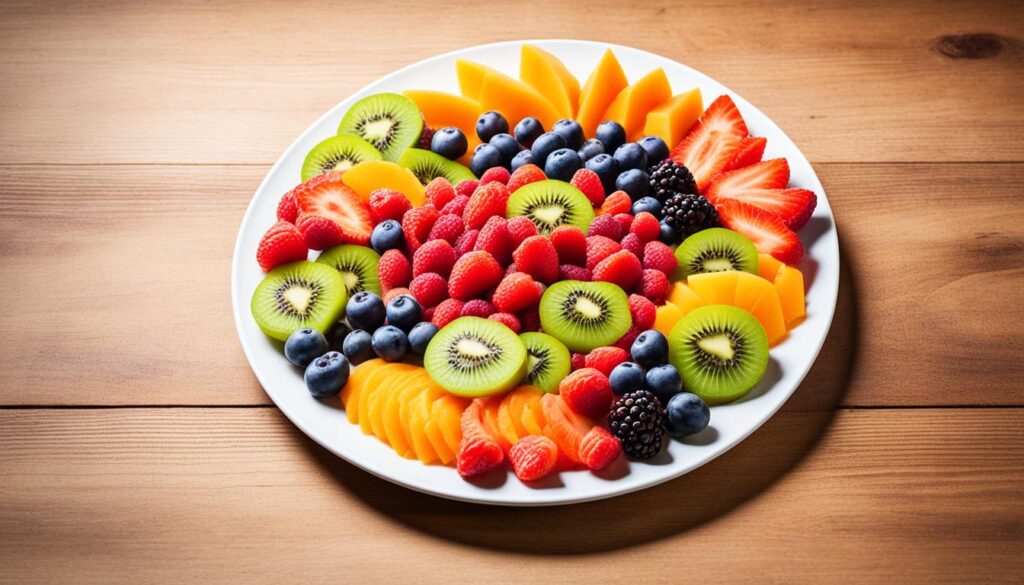
Creative Recipes that Include High Protein Fruits
Now that we’ve explored the top high-protein fruits and learned about their role in a healthy diet, let’s get creative in the kitchen!
In this section we will share some delicious recipes that incorporate these protein packed fruits. Whether you’re looking for a refreshing smoothie, a nutritious breakfast option, or a delectable dessert with a protein twist, we’ve got you covered!
Refreshing Protein Packed Smoothies
Start your day with a burst of flavor and nutrients by making protein packed smoothies. These fruity concoctions are not only delicious but also a great way to power up your morning. Try this mouthwatering recipe:
Berry Blast Smoothie
– Ingredients:
- 1 cup of mixed berries blueberries, raspberries, strawberries
- 1 ripe banana
- 1 scoop of vanilla protein powder
- 1 cup of almond milk
- 1 tablespoon of honey
– Instructions:
- Add all the ingredients to a blender.
- Blend until smooth and creamy.
- Pour into a glass and enjoy!
Fruit-Filled Breakfast Options
Make your mornings brighter and more satisfying with breakfast options that feature high protein fruits. These dishes will give you the energy you need to kick-start your day. Try this mouthwatering recipe:
Protein-Packed Peanut Butter Banana Toast
– Ingredients:
- 2 slices of whole wheat bread
- 2 tablespoons of peanut butter
- 1 ripe banana, sliced
- 1 tablespoon of chia seeds
- 1 drizzle of honey
– Instructions:
- Toast the bread until golden brown.
- Spread peanut butter evenly on each slice.
- Arrange the banana slices on top of the peanut butter.
- Sprinkle chia seeds over the bananas.
- Drizzle honey over the toast.
- Serve and enjoy!
Delicious Desserts with a Protein Twist
Who says desserts can’t be healthy and protein-packed? Indulge your sweet tooth while still getting a protein boost by trying these delightful creations. Try this mouthwatering recipe:
Protein Packed Chocolate Fruit Cups
– Ingredients:
- 1 cup of Greek yogurt
- 2 tablespoons of cocoa powder
- 2 tablespoons of honey
- 1 teaspoon of vanilla extract
- Assorted high-protein fruits e.g. strawberries, kiwi, blueberries
– Instructions:
- In a bowl, mix the Greek yogurt, cocoa powder, honey, and vanilla extract until well combined.
- Spoon the mixture into individual serving cups.
- Top with assorted high-protein fruits.
- Refrigerate for at least 1 hour.
- Serve and savor the chocolaty goodness!
Get creative in the kitchen and let these recipes inspire you to enjoy high-protein fruits in new and exciting ways.
Whether it’s a refreshing smoothie, a filling breakfast option, or a guilt free dessert, these recipes are sure to satisfy your taste buds while keeping you fueled throughout the day. So grab your apron and start cooking!
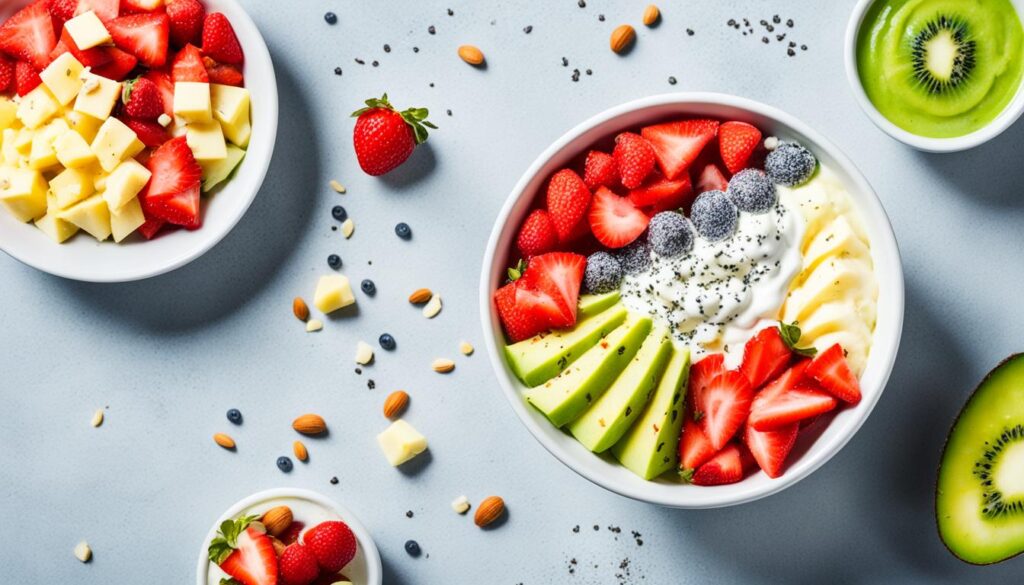
Conclusion
Incorporating high-protein fruits into your diet is a smart and delicious way to boost your protein intake and maintain a healthy eating plan.
Throughout this article, we have explored the top 7 high-protein fruits and discovered their nutritional benefits. From the protein powerhouse of guavas to the protein packed surprise of jackfruit, these fruits offer a diverse range of options to suit every taste.
By understanding the role of protein in your diet and the benefits of both meat and plant-based sources, you can make informed choices about the foods you consume.
Proteinaceous fruits are a convenient and natural source of protein, providing essential nutrients that support your overall health and wellbeing.
Whether you choose to add high protein fruits to your meals or get creative with recipes such as refreshing smoothies, breakfast options, and protein desserts, these fruits offer a versatile and scrumptious way to enhance your culinary experience.
So, why not spice up your diet with some protein rich fruits and unlock a world of flavor and nutrition?



